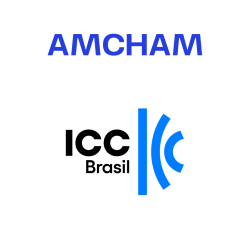Bioreset
ABOUT IT
Bioreset's project uses waste from beer production and the pulp and paper industry to produce polyhydroxyalkanoates (PHAs), a type of biodegradable bioplastic. PHAs are totally biodegradable, decomposing in natural environments such as soil and water without leaving toxic residues or microplastics.
Bioreset's approach promotes the circular economy by transforming low-value waste into high-value bioplastics. Bioreset's PHAs are compatible with existing plastics manufacturing processes, facilitating the transition to more sustainable materials without the need for major investments in new equipment.
Replacing conventional plastics with PHAs significantly reduces the amount of plastic that ends up in landfills and natural environments. The biodegradability of PHAs prevents the formation of microplastics, protecting ecosystems and human health.
The production of PHAs from industrial waste reduces the carbon footprint associated with the production of plastics, helping to mitigate climate change. The use of agro-industrial waste as a raw material promotes sustainable waste management, avoiding pollution and contamination of soil and water.
The Bioreset project is planned to be completed in a total period of 36 months, with the following MAIN STEPS:
Phase 1: Research and Development (0-12 months)
Activities: Development of production protocols, optimization of fermentation processes, laboratory and pilot scale tests.
Objective: To establish the technical and economic viability of producing PHAs from industrial waste.
Phase 2: Scale-up and Pilot Production (12-24 months)
Activities: Implementation of pilot-scale production (50-100 tons/year), obtaining certifications and regulatory compliance, market testing.
Objective: To validate production on an intermediate scale and prepare for industrial expansion.
Phase 3: Industrial-scale production (24-36 months)
Activities: Expansion of production capacity to 600 tons/year, commercial partnerships, national and international market expansion.
Objective: To establish industrial-scale production, increase market capacity and guarantee the economic and environmental sustainability of the project.
Results and Objectives
Expected results:
- Production of PHAs on an industrial scale with a capacity of 600 tons per year. Production will be done sustainably, minimizing the use of natural resources and reducing the carbon footprint;
- Reducing Plastic Pollution;
- Replacing petroleum-based plastics with biodegradable bioplastics;
- Significant reduction in the amount of non-biodegradable plastic in landfills and in the environment, reducing pollution and the risks associated with microplastics;
- Using industrial waste as raw material for the production of bioplastics;
SDGs
External Certification
No
International Commitments
National Commitments
National Solid Waste Policy (PNRS), Reducing Plastic Pollution
More info



